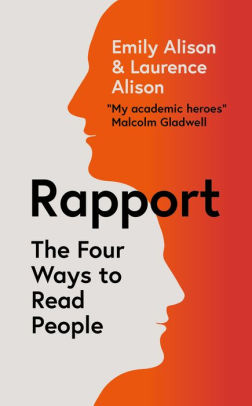Podcast #648: Lessons in Building Rapport from Experts in Terrorist Interrogation
Description
What do you imagine when you imagine a terrorist being interrogated by an intelligence officer? The former getting roughed up? The latter yelling, banging his fists on the table, and demanding that the detainee talk?
My guests today argue that using force in this way to get what you want isn’t effective when you’re dealing with a terrorist, or, for that matter, a teenager. Their names are Laurence and Emily Alison, and they’re a married pair of forensic psychologists, as well as the authors of Rapport: The Four Ways to Read People. We begin our conversation with how through their extensive experience in training police, military, and security agencies like the FBI and CIA on how to conduct interrogations of criminals and terrorists, the Alisons discovered that literal and metaphorical browbeating was ineffective in inducing communication and cooperation, and that methods which built rapport were much more successful. We then discuss why building rapport in order to handle conflict, avoid arguments, and create connections is important not only in interrogation rooms but at work and at home. From there we dive into the four elements that make up this model of interpersonal communication, the last of which we demonstrate with some role play. We end our conversation with the idea of the “animal wheel,” in which different personality styles are represented by a mouse, lion, T-Rex, and monkey, and the importance of understanding your own interpersonal style and that of the person you’re engaging with, so you can predict how they’ll react, and adapt accordingly.
If reading this in an email, click the title of the post to listen to the show.
Show Highlights
- What is rapport? How is it different from friendliness?
- What does fear do in a conversation or relationship?
- Why is rapport so important to our overall well-being?
- Can you learn rapport?
- How the pandemic has made our rapport skills worse
- What does honesty look like when trying to build rapport?
- What does autonomy have to do with rapport?
- How to deal with resistance
- The importance of reflection in the midst of conversation
- How to respond to the classic “Does this dress make me look fat?”
Resources/People/Articles Mentioned in Podcast
- How to Survive a Secret Syrian Terrorist Prison
- 6 Signs for Sizing People Up
- The Blue Zones
- How to Build Instant Rapport
- How to Design Conversations That Matter
- How to Avoid Conversational Narcissism
- AoM’s conversation and small talk archives
- Our Disembodied Selves and the Decline of Empathy
Connect With Laurence and Emily
Listen to the Podcast! (And don’t forget to leave us a review!)
Listen to the episode on a separate page.
Subscribe to the podcast in the media player of your choice.
Listen ad-free on Stitcher Premium; get a free month when you use code “manliness” at checkout.
Podcast Sponsors
Click here to see a full list of our podcast sponsors.
Read the Transcript
Brett McKay: Brett McKay here, and welcome to another edition of The Art of Manliness podcast. What do you imagine when you imagine a terrorist being interrogated by an intelligence officer? The former getting roughed up, the latter yelling, banging his fist on the table and demanding that the detainee talk? Well, my guests today argue that using force in this way to get what you want isn’t effective when you’re dealing with a terrorist, or for that matter, a teenager. Their names are Laurence and Emily Alison, and they’re a married pair of forensic psychologists as well as the authors of Rapport: The Four Ways to Read People.
We begin our conversation with how, through their extensive experience in training police, military, and security agencies like the FBI and CIA on how to conduct interrogations of criminals and terrorists, the Alisons discovered that literal and metaphorical brow-beating was ineffective in inducing communication and cooperation, and that methods which build rapport were much more successful. We then discuss why building rapport in order to handle conflict, avoid arguments, and create connections is important not only in interrogation rooms, but at work and at home. From there, we dive into the four elements that make up this model of interpersonal communication, the last of which we demonstrate with some role play.
And we end our conversation with the idea of the animal wheel, in which different personality styles are represented by a mouse, lion, T-Rex, and monkey, and the importance of understanding your own interpersonal style and that of the person you’re engaging with so you can predict how they’ll react and adapt accordingly. After the show’s over, check at our show notes at aom.is/rapport.
Alright, Laurence Alison, Emily Alison, welcome to the show.
Laurence Alison: Thank you very much, Brett. How are you doing?
Emily Alison: Thank you.
Brett McKay: Doing good. Well, it’s great to have you. You two co-authored a book… You’re husband and wife, but you co-authored a book called Rapport: The Four Ways to Read People. And this book is… I think it’s like a layman’s summation of both of your background in forensic psychology. So let’s talk about that. What’s your backgrounds, and then how did that background lead to this book?
Laurence Alison: Sure, sure. So as you say, we’re both forensic psychologists. I guess we’ve got slightly different emphases. Mine, in simple terms, I’ve worked the last 25 years mainly with police, law enforcement, security services, and military, and I guess you could categorize what I do as being interested in the decision-making of those people and in the way in which they communicate, and I guess a lot of my work has been directed at catching the bad guys, whereas with Emily…
Emily Alison</strong











